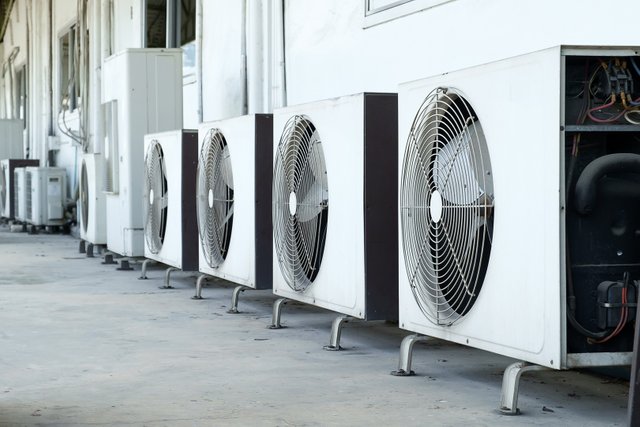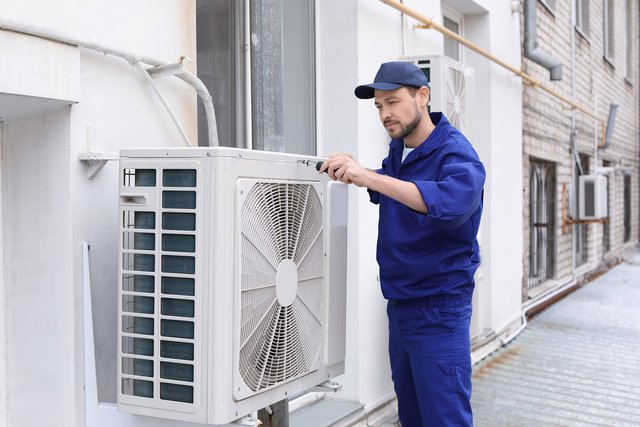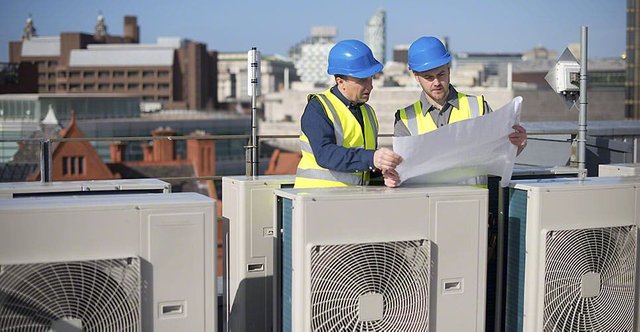Navigating HVAC Regulations and Permits in Battery Park City
Battery Park City, a stunning waterfront neighborhood in Lower Manhattan, has become a symbol of modern urban living. With its breathtaking views, green spaces, and proximity to cultural landmarks, it's no wonder that residents and businesses alike are drawn to this vibrant community. However, like any urban environment, Battery Park City has its own set of regulations and permitting requirements, particularly when it comes to HVAC installations. In this article, we will guide you through the essential information you need to navigate HVAC regulations and permits in Battery Park City.

Why HVAC Regulations Matter
Heating, Ventilation, and Air Conditioning (HVAC) systems are a critical component of any building, ensuring comfort and indoor air quality. However, they can also pose potential hazards if not installed or maintained correctly. To safeguard the well-being of residents and the structural integrity of buildings, local authorities in Battery Park City, like in many other urban areas, have established specific regulations governing HVAC installations.
Compliance with Local Codes
Compliance with local building codes and regulations is essential when installing or modifying HVAC systems in Battery Park City. These codes are designed to ensure that HVAC systems are safe, efficient, and environmentally responsible. Failing to adhere to these regulations can result in costly fines, delays, or even the shutdown of your HVAC system.
Environmental Impact
Battery Park City, being a waterfront neighborhood with a strong focus on sustainability, places a high premium on minimizing the environmental impact of HVAC systems. This includes energy efficiency, emissions control, and noise reduction. Complying with these requirements not only helps protect the environment but can also lead to cost savings in the long run.

Key Regulations and Permit Requirements
To help you navigate the complex world of HVAC regulations and permits in Battery Park City, here are some of the key requirements you should be aware of:
Local Building Codes
Battery Park City adheres to the New York City Building Code, which governs all construction and installation activities within the city. HVAC installations must meet the specific requirements outlined in the code. These may include regulations related to equipment placement, fire safety, and accessibility for maintenance.Energy Efficiency Standards
Battery Park City encourages energy-efficient HVAC systems to reduce the neighborhood's overall energy consumption. As a result, you may be required to meet specific energy efficiency standards when installing or upgrading HVAC equipment. The New York City Energy Conservation Code sets these standards and mandates compliance through the permitting process.Noise Ordinances
The serene atmosphere of Battery Park City places a premium on reducing noise pollution. HVAC systems are often subject to noise regulations to ensure they do not disturb residents or visitors. You may need to submit noise impact assessments and comply with noise mitigation measures during the permitting process.Emissions Control
Battery Park City is committed to reducing its carbon footprint. To align with these goals, HVAC systems may need to comply with emissions control regulations. This might involve using low-emission equipment or alternative energy sources, such as solar or geothermal heating and cooling systems.Permits and Inspections
Before you can begin any HVAC installation or modification in Battery Park City, you must obtain the necessary permits. The Department of Buildings (DOB) is responsible for issuing these permits and conducting inspections to ensure compliance with local regulations. It is essential to submit a comprehensive application, including detailed plans and specifications, to expedite the permitting process.

The Permitting Process
Navigating the permitting process for HVAC installations in Battery Park City can be a daunting task. Here's a step-by-step guide to help you get through it smoothly:
Determine the Scope of Work
Clearly define the scope of your HVAC project. Identify whether it involves new installations, replacements, or modifications to existing systems. This initial step will guide you in understanding the specific permits and requirements you need to meet.Engage with Professionals
Consider hiring experienced HVAC contractors like HVAC Installations PRO: https://hvacinstallationspro.com/ who are familiar with local regulations and permitting processes. They can assist you in preparing the necessary documentation, such as design plans, load calculations, and equipment specifications, to ensure a successful permit application.Prepare Permit Application
Gather all required documentation, including HVAC system plans, engineering drawings, energy efficiency calculations, and noise impact assessments. Ensure that your application is complete and accurate to avoid delays.Submit Permit Application
Submit your permit application to the Department of Buildings. Be prepared to pay the applicable fees, which can vary depending on the scope and complexity of your project. The DOB will review your application and plans to ensure compliance with local regulations.Inspection and Approval
Once your permit is approved, you can proceed with your HVAC installation. Throughout the construction process, the DOB will conduct inspections to verify that the work aligns with the approved plans. Any deviations or non-compliance issues must be rectified promptly.Obtain Final Approval
After successful inspections and any necessary corrections, you will receive final approval from the DOB. This signifies that your HVAC installation meets all regulatory requirements and can operate legally in Battery Park City.
Conclusion
Navigating HVAC regulations and permits in Battery Park City is a crucial step in ensuring the safety, efficiency, and environmental responsibility of HVAC systems. While it may seem complex and time-consuming, compliance is essential to avoid costly fines and disruptions to your project. Engaging with experienced professionals who understand the local requirements can streamline the process and help you achieve a hassle-free HVAC installation in this vibrant waterfront community.
Remember that Battery Park City's commitment to sustainability and environmental responsibility means that HVAC installations must meet high standards of energy efficiency and emissions control. By adhering to these regulations, you not only contribute to the well-being of the community but also potentially reduce your long-term operating costs.
As you embark on your HVAC project in Battery Park City, take the time to research and understand the specific regulations and permit requirements that apply to your situation. With careful planning and compliance, you can enjoy the benefits of a comfortable, efficient, and environmentally responsible HVAC system while contributing to the vibrant and sustainable community that Battery Park City is.
Looking for a Reliable HVAC Installation Partner in Battery Park City
Finding the right contractor is a crucial step in ensuring a successful project. Look for professionals with a proven track record of working in the area and a deep understanding of local regulations. They should be well-versed in energy-efficient HVAC solutions and have experience with the permitting process. Additionally, seek references and reviews from previous clients to gauge the quality of their work and their commitment to compliance. By partnering with a reputable HVAC contractor in Battery Park City: https://hvacinstallationspro.com/hvac-installation-in-battery-park-city/, you can navigate the regulations and permit requirements with confidence, knowing that your project will be executed professionally and in accordance with all necessary guidelines.
You've got a free upvote from witness fuli.
Peace & Love!